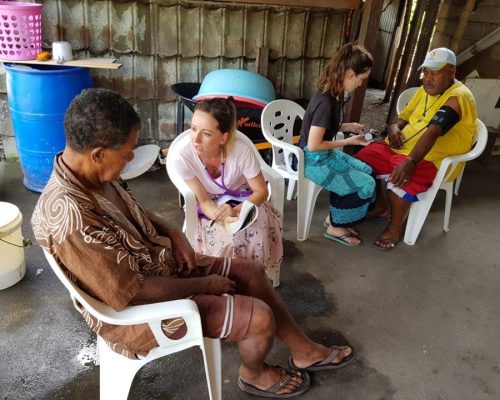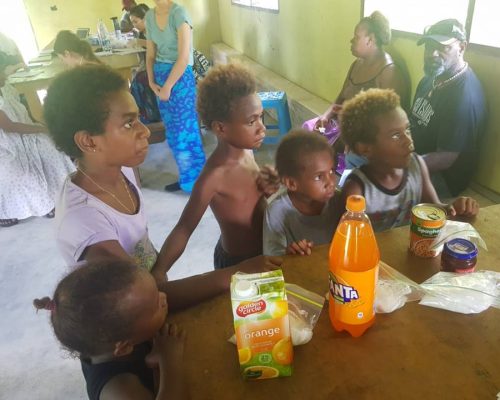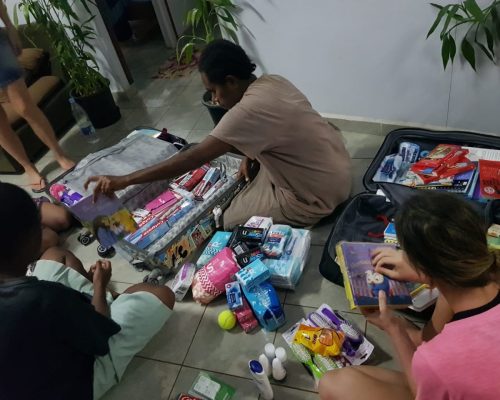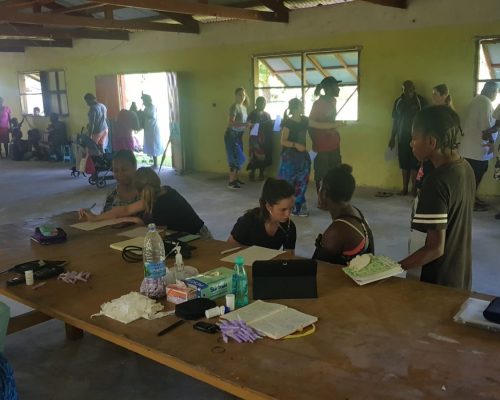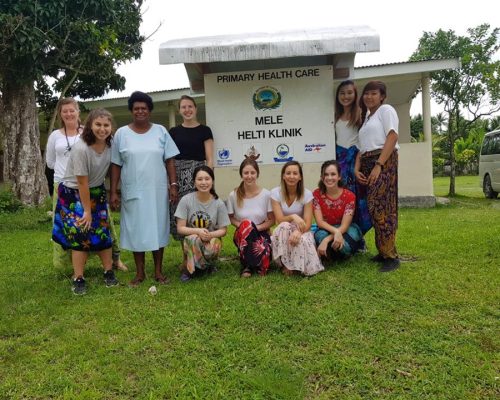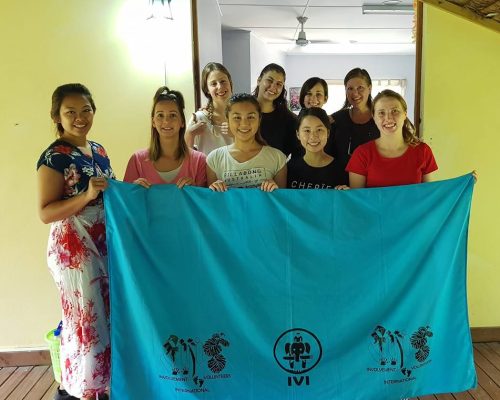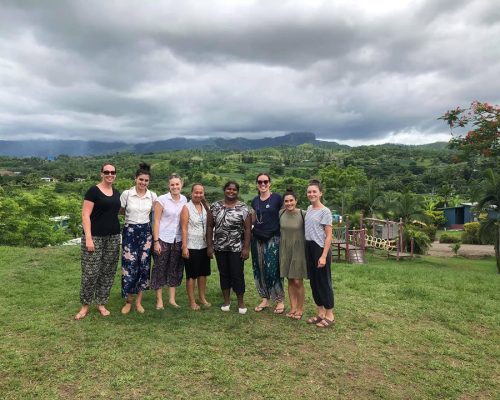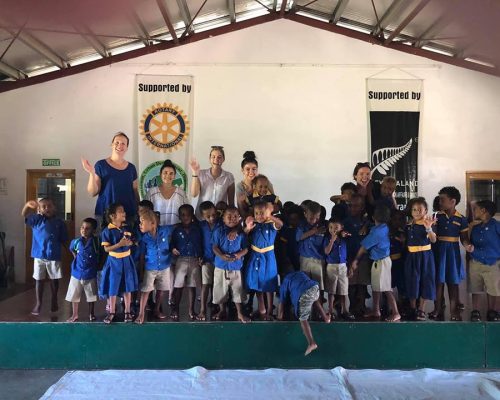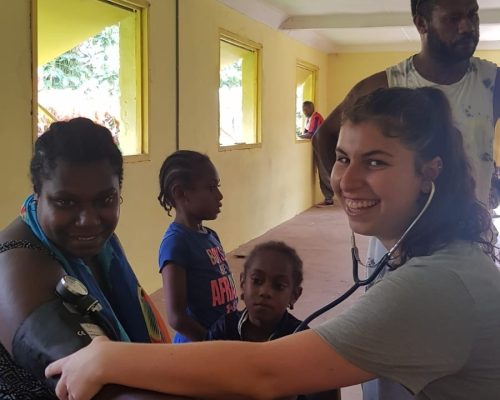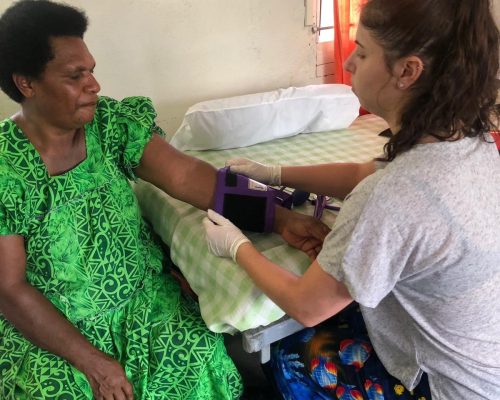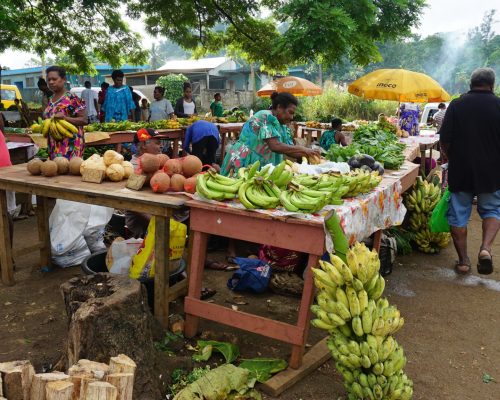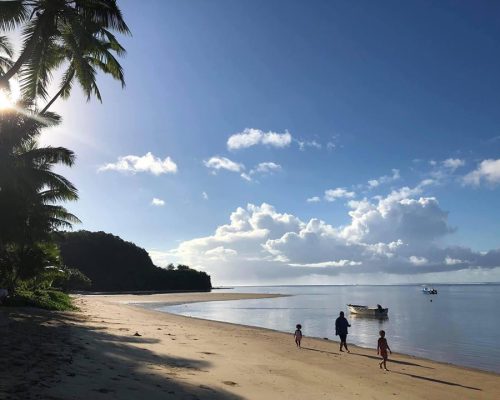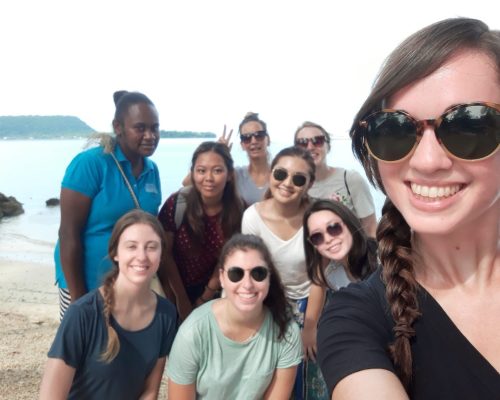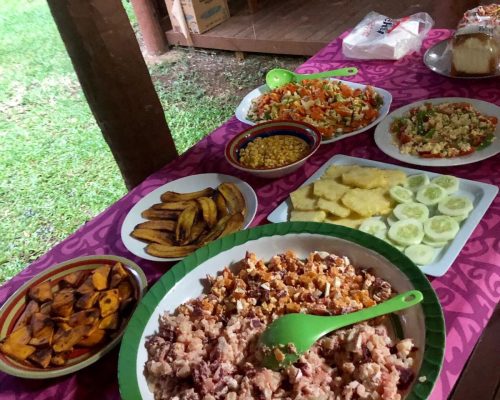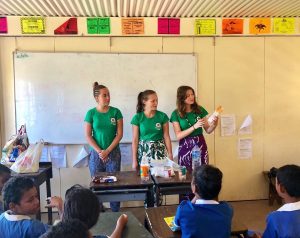WHY we need you in Vanuatu
- In 2016, only around 57.8% of the population had access to electricity
- Over 12% of Vanuatu’s population live below the poverty line, with 1/3 of people lacking access to basic services
- Vanuatu experiences cyclones, that severely damage schools, homes and community buildings
- Vanuatu has one of the highest rates of diabetes in the world, as well as high blood pressure, mineral deficiencies and a lack of macronutrients
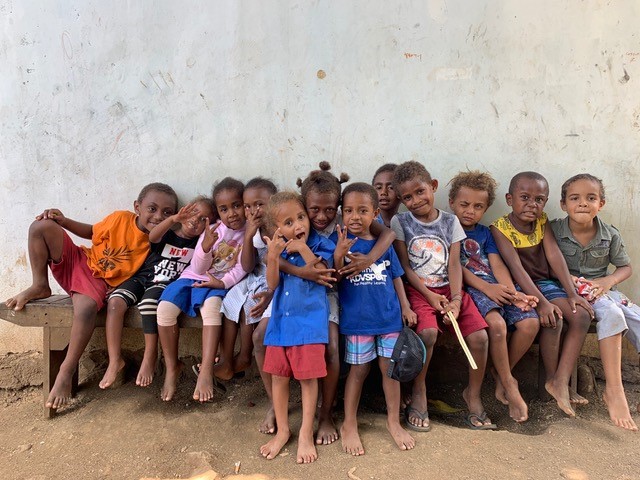
HOW can you help?
- For health students and qualified professionals, combat malnutrition and public health issues in Vanuatu
- In teams of 4 to 8, perform free health checks in authentic Vanuatu villages
- Help promote health, nutrition and fitness, giving free assessments to villagers from disadvantaged backgrounds
- Create diet, nutrition and diabetes awareness campaigns, to educate the local children
WHAT can you do?
- Conduct health screenings like blood pressure checks, blood glucose level tests and waist to hip ratios measurement.
- Help diognose protein deficiency among school kids
- Design fitness and exercise programs for villagers
- Create educational talks on topics like the dangers of sugar and other diseases
Why Involvement Volunteers International?
- Non Profit Org & Charity with 30+ Years Experience
- 4 Projects to Choose From in Vanuatu
- Social Experiences - Sharing with International Volunteers
- Excellent Safety Record, In-Country 24/7 Support & Emergency Assistance
- 1 Application Fee - Multiple Countries
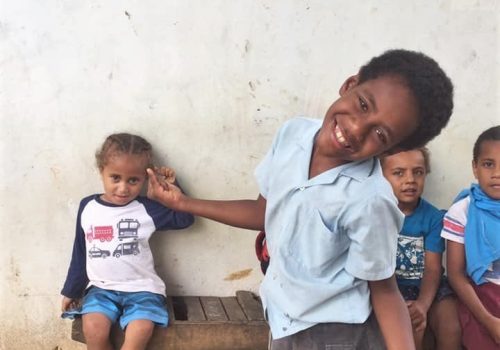
PROJECT NAME: NUTRITION & PUBLIC HEALTH
LOCATION: PORT VILLA & SURROUNDING ISLANDS
START DATES: 9th June 2024
ACCOMMODATION: GUEST HOUSE
MIN DURATION: 2 WEEKS
MIN AGE: 18+
SPECIAL REQUIREMENTS: MEDICAL, NUTRITION & HEALTH STUDENTS OR QUALIFIED PROFESSIONALS
Overview
The Pacific Island countries, including Vanuatu have some of the highest rates of diabetes in the entire world. Results from health surveys indicate diabetes rates as high as 47% in certain communities, but on average between 15 – 25% of the population. Some pacific island countries have the highest death rate from diabetes in the world. With neighboring Australia at approx 5%, there is a significant need for nutritional education and healthcare support in Vanuatu.
Obesity and non-communicable diseases (NCDs) are placing a huge social, economical and emotional load on the people of Vanuatu.
IVI’s nutrition and public health outreach cater to students and graduates in the field of nutrition, dietetics, holistic healthcare, nursing, naturopathy, physiotherapy & medicine. You’ll participate in an outreach program designed to provide free healthcare education for communities which generally lack access to healthcare services.
Working alongside a qualified practitioner from Australia, the aim of the outreach project is health promotion & free assessments in villages, corporate businesses, schools & community centers to increase the knowledge about nutrition and the effect of physical activity in the prevention of obesity and development of NCD’s.
In teams of 4 to 8, you will have endorsement from the Ministry of Health Vanuatu to perform free health checks for villagers and/or corporate staff. Monday will be orientation day in Port Villa. The team will show you around including the local fruit market, walk through town, show banks, supermarket and teach some basic Bislama phrases.
During the program, you may also be involved in preparing educational talks on various topics such as the dangers of sugar and other disease causing issues. You will have the opportunity to conduct in depth health screenings like blood pressure checks, blood glucose level tests and waist to hip ratios measurement.
Diet and Lifestyle Observations in Vanuatu
- Population of Vanuatu 280,000 and most of the population of Vanuatu is rural, although Port Vila and Luganville have sizable populations. Port Vila is the largest city and capital with a population of 45,000, accounting for 19% of the country’s total population.
- Average income 24,000VUV to 30,000VUV p/month. To feed a family of 6 cost for food is 5000VUV p/week. Most families have on average 4 children.
- Local foods consumed in high amounts – Breakfast – Bread/butter/jam/eggs/mayonnaise.
- Lunch – Huge (OMG!) servings rice with fish, pork, chicken or beef and mashed Casava and cabbage salad (the salad is actually really good + reef fish yum!)
- Dinner – repeat. Fruit/snacks – Coconuts, Pineapple, Papaya, Apple, Soursop, Watermelon, Peanuts, Banana chips (fried), Cassava chips (fried), Vanuatu Almonds (they are huge and they fry them in Veg oil and sugar), Bread with peanut batter and jam together. Vegetables in season I noted at market – Island cabbage, Cassava, Potato, Carrot, Lettuce, Eggplant and Green Beans.
- Observations Diet and Lifestyle – Portions are at least 4 x the recommended size with rice 70% of weight on plate. The local women do not drive and catch the bus (minivans) and walk a lot. High % of women 30 years+ tend to be overweight, with large bloated stomachs (fat appeared to be visceral).
- Traditional living arrangements in that Men provide income and many women stay at home to raise family and cook/clean, men and women drink a lot of coconut water and possibly not enough water given the climate. Unsure of contraceptive methods but most families have 4+ children.
- Drink – Alcohol usually on weekend only due to cost, Lots of black tea with sugar and biscuits.
- Gifts – Books, Toothbrushes, floss, paper, hand sanitiser (The local team have a no sweets/chocolate policy due to the excess sugar consumption).
Location
Port Vila, the capital and main hub of Vanuatu is situated on Efate island. The architecture has mainly french with the population quite multicultural including ni-Vanuatu, Chinese, Vietnamese, British and French. Port Vila has all the standard facilities you’d expect from a commercial hub such as hospitals, shopping districts (note Vanuatu is a tax haven so duty free!), sports stadium, hotels, casino, museums and cultural centers. The town is a great base for divers who come for the trips to Mele Cascades, a large rain forest water fall with rock pools and incredible scenery. As the commercial hub tourism plays an important role, however it does not feel ‘touristy’ especially in the areas where IVI services. Here you can get to know the locals and truly experience the authentic lifestyle from outside of the tourist resorts.
Project Tasks
– Conducting individual and group consultations
– Remote island healthcare education
– Corporate health
– Children’s health & education
– Identifying protein deficiency among school kids
– Assisting in the prescription of natural protocols
– Providing educational assistance and local talks (if desired)
– Helping build nutrition and diabetes awareness campaigns
– Designing fitness and exercise programs
– Village exercise programs
– General healthy living programs.
Food & Accommodation
Accommodation is in a local guest house, usually in a twin share room. The room will be basic but comfortable with wester toilets, showers, fans, etc.
Breakfast and dinner will be provided for the duration of your placement. Food will be mainly authentic to the local culture which includes plenty of chicken dishes, coconut based curries, dhal (lentils), fresh fish, saffron rice and tropical fruits.
*If you have any special dietary requirements, please let us know when you apply for the program so we can make arrangements for you.
Specialty Health
Projects
- Nutrition & Public Health Outreach
- Mental Health Support
-
1 Week - N/A
-
2 Weeks - $1250
What's Included
-
Accommodation
-
Meals
-
Airport Pickup
-
Local Transportation
-
1 Day Orientation
-
24/7 In-Country Support
-
Project Materials & Equipment
-
Pre-departure Expert Advice
-
Preperation Tools & Checklists
-
Certificate of Completion
- Application fee is one off per person (unlimited placements)
- Click Here to convert the below prices to your local currency
- Discounts may apply if travelling in a pair or group!
- All credit card /international fees included in below pricing! 🙂
Testimonials...
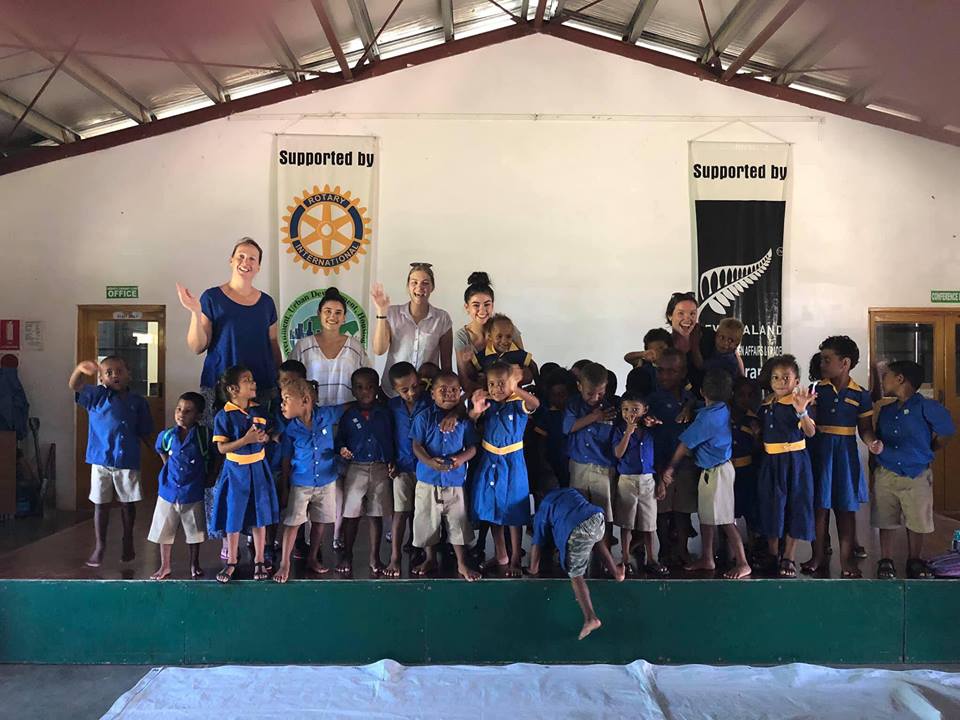
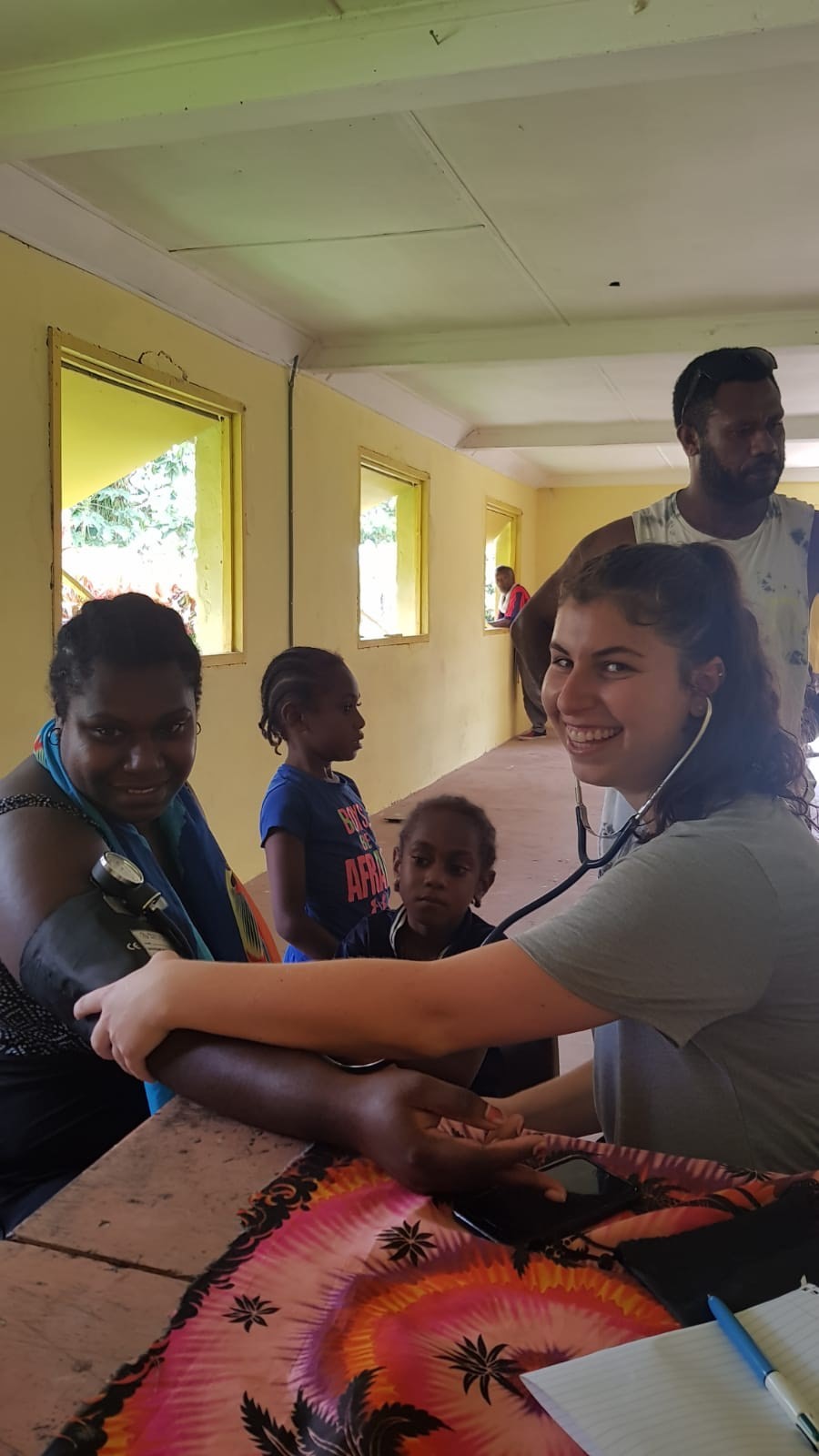
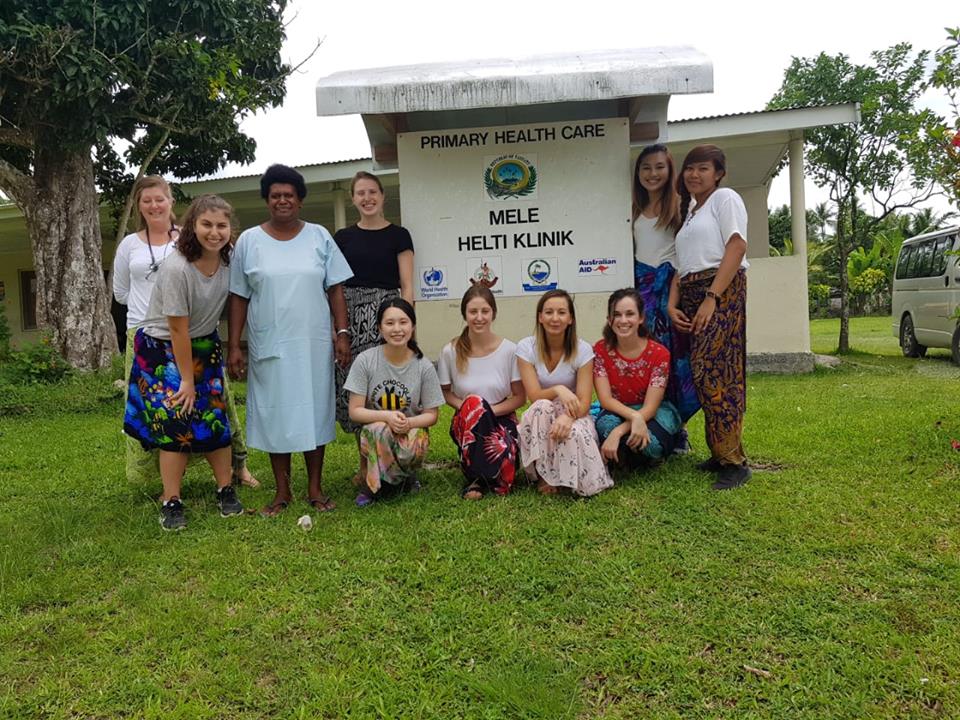
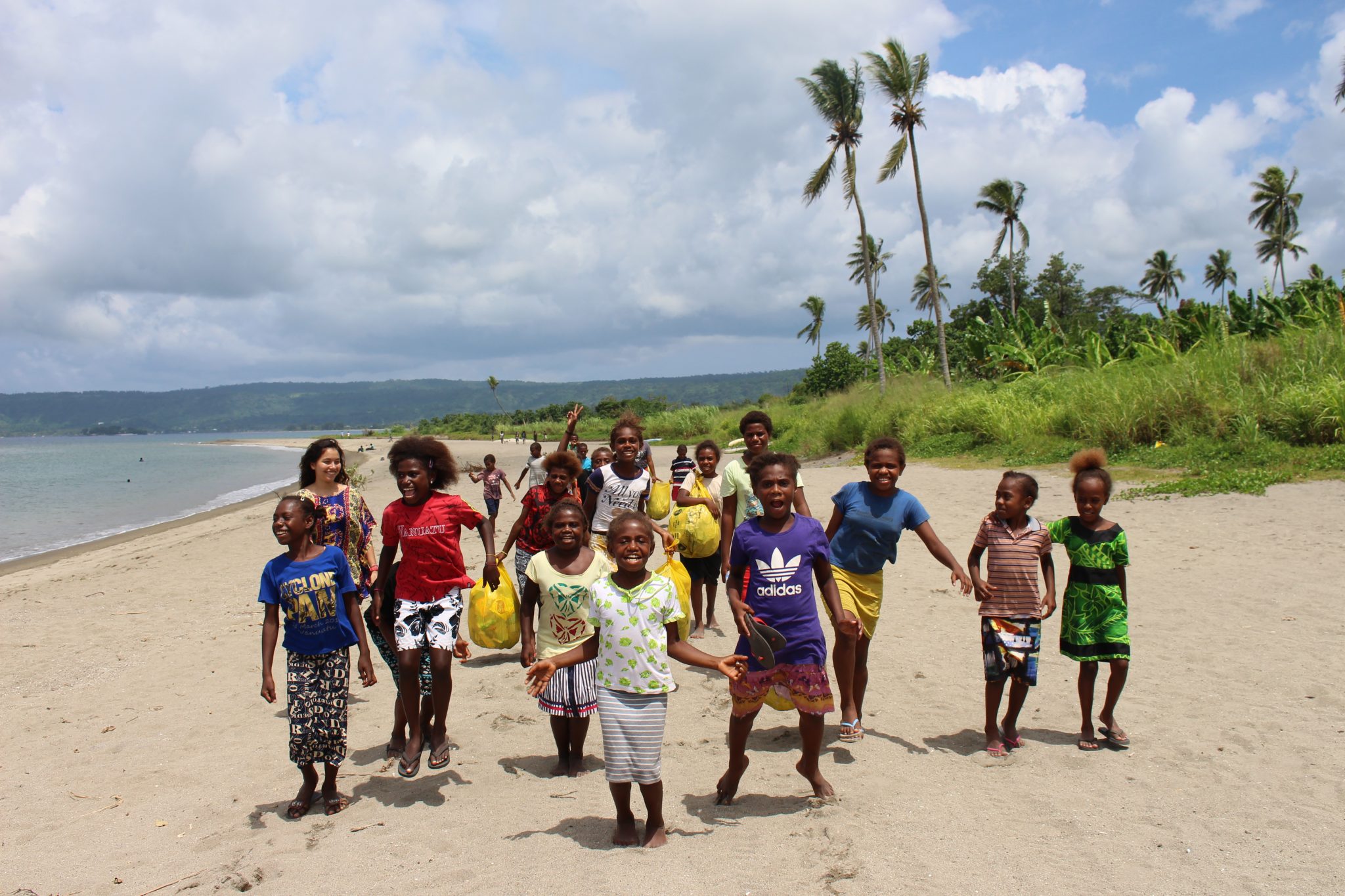
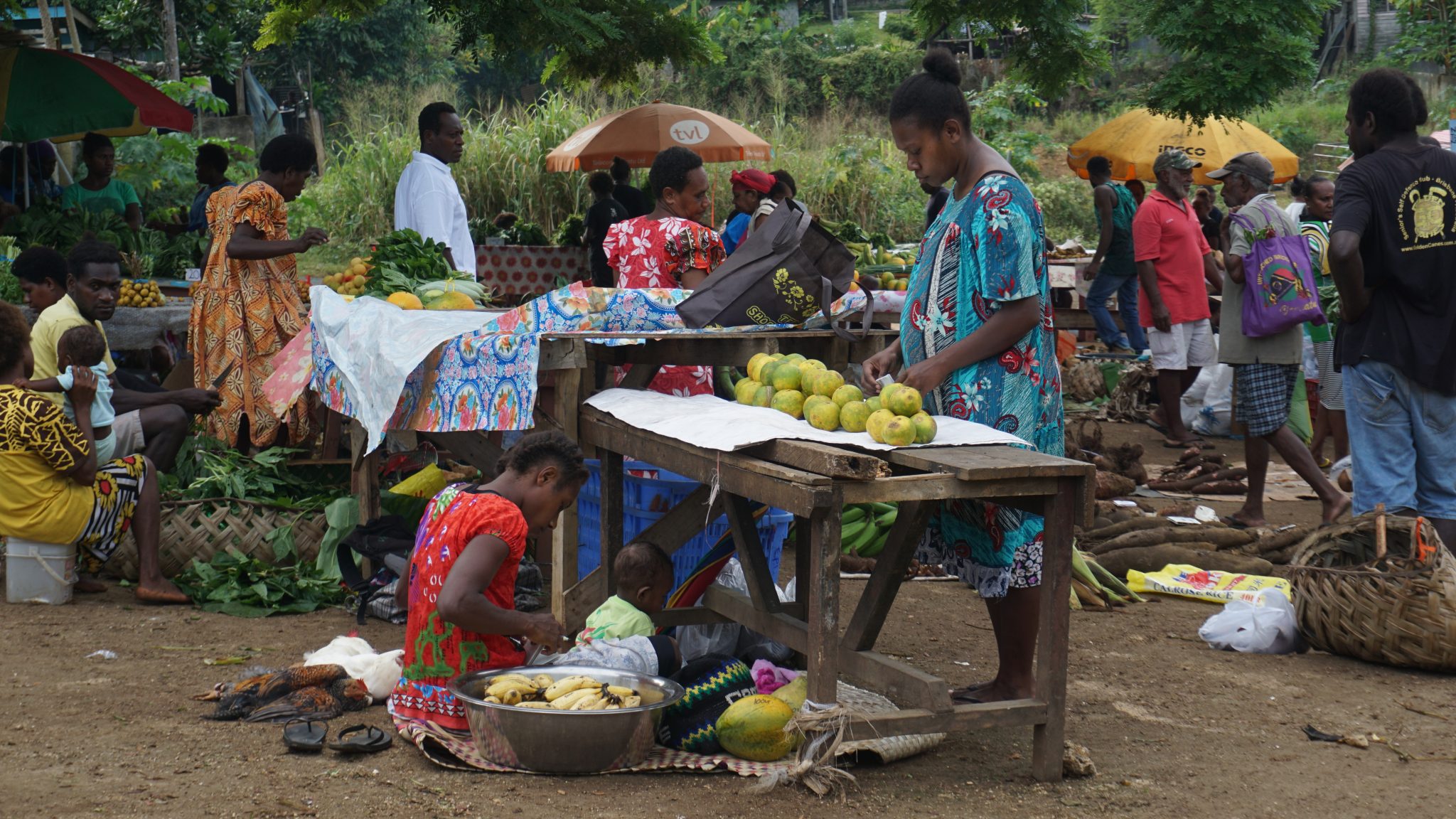
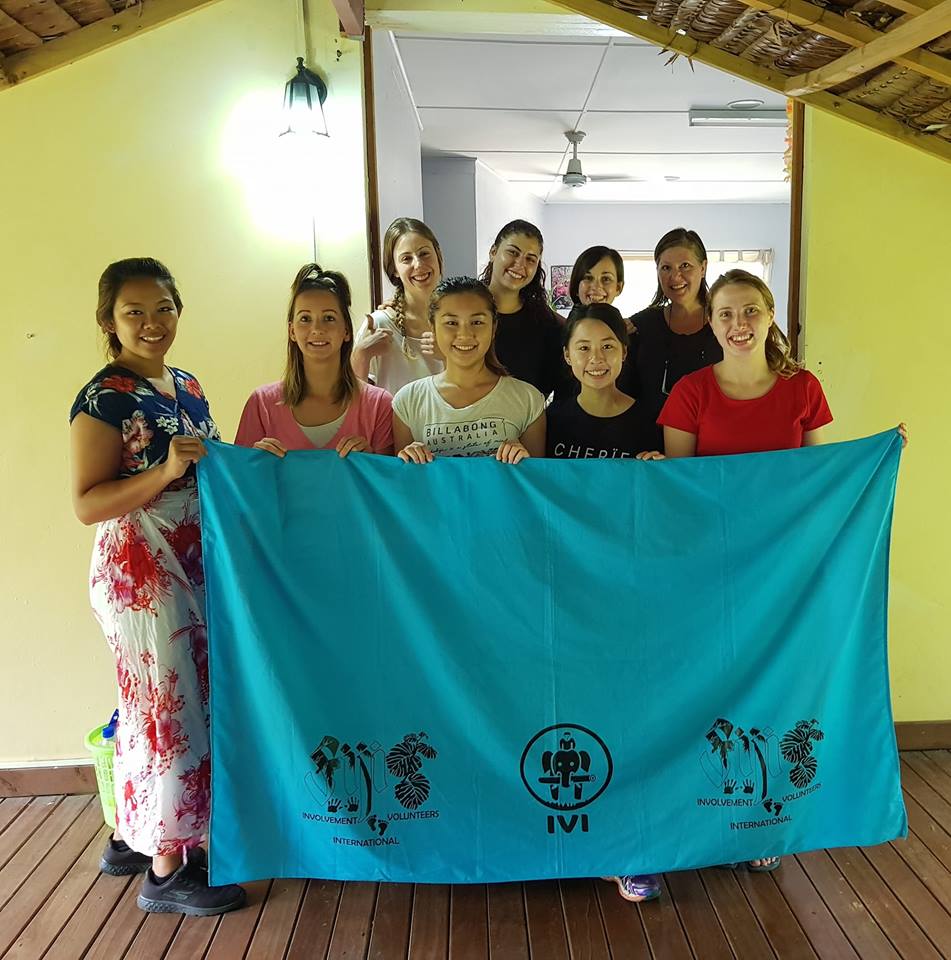
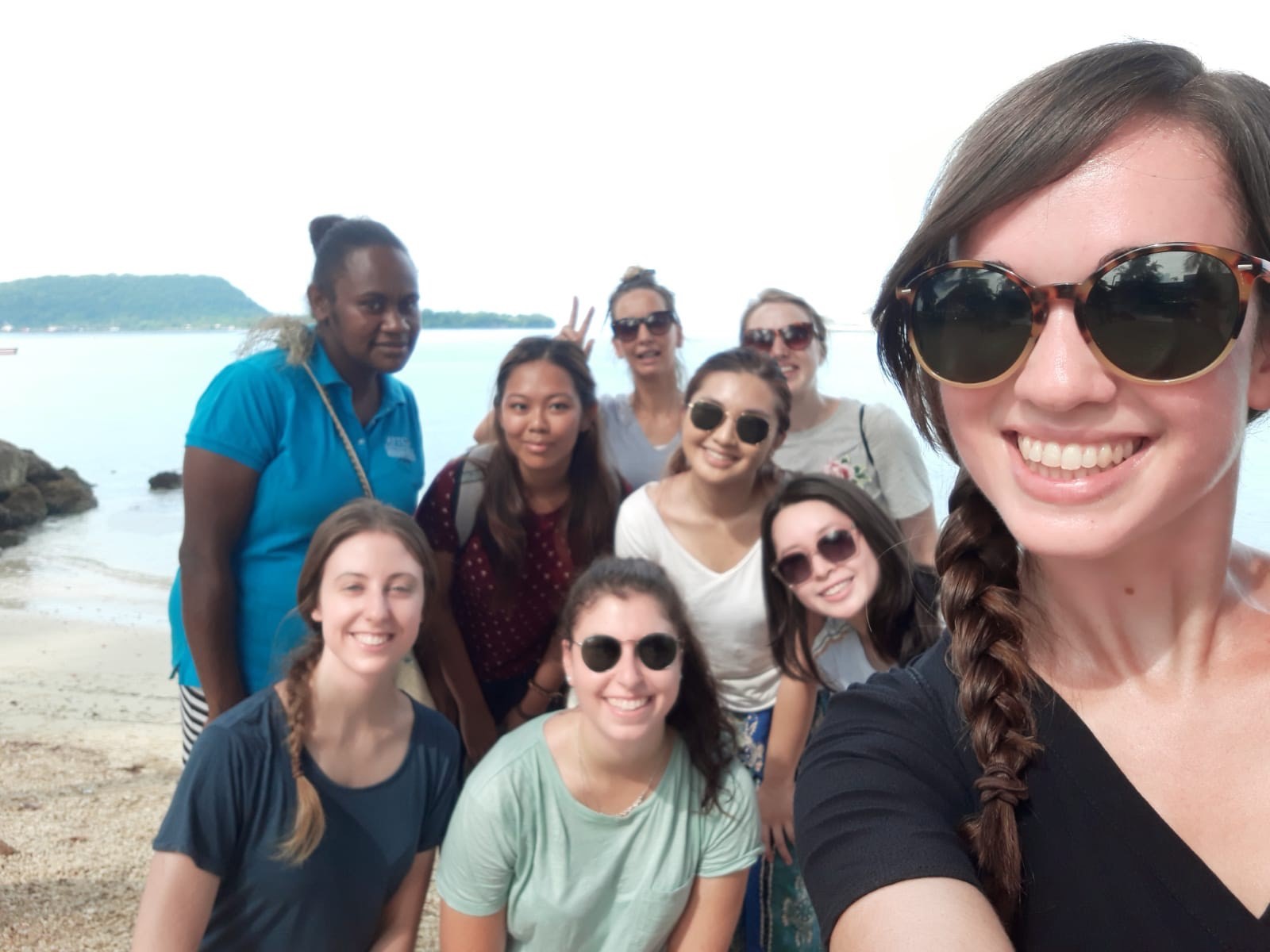
FAQ
Students studying in the discipline of health science, physiotherapy & related fields and qualified nurses, therapists, nutritionists, naturopaths, dietitians & allied health professionals. A qualified practitioner from Australia will be available to support and guide you during the program. Volunteers without qualifications in this field are still encouraged to apply and depending on your desire and experience, you may be accepted into the program.
- Accommodation (Guest house – Sharing with other volunteers)
- 2 meals p/day (Breakfast & Dinner)
- Return airport transfers
- In-country qualified healthcare practitioner coordinator
- Orientation & training + cultural sightseeing
- In country 24/7 coordination & emergency assistance
- Fundraising support
- University course credits (where applicable)
- Certificate of Completion
- Airfares
- Travel Insurance
- Tours, Souvenirs & spending money
Orientation starts on Monday and includes a tour of the local area and an overview of the project including any necessary permits, paperwork and logistics. In most cases you will have 1 to 2 days to ease your way into the culture and settle into your new surrounds before commencing the program.
During orientation we’ll review previous data from past intakes and practice health checks and related preparations.
An arrival airport transfer is included for pick-ups on Sundays. If arriving on other days, you’ll need to make your own way to the placement. We’ll provide instructions for this and will assist you. If arriving on the Saturday, you’ll need to book an extra nights accommodation in advance. Local travel to the projects and other sites is also included in the cost of the program.
Volunteers can expect to have some smaller days of 4-6 hours or bigger days of 8 hours but it does vary, and volunteers need to be flexible with the demands of each location.
Some of the work you will be doing will be dependent on your prior skill level and qualifications. Some of the longer days or basic village stays can be challenging at tiring at times but our volunteers often say this can be the highlight of the trip! Our goal is to offer you the opportunity to gain hands on experience in the field while helping the local community.
Weekends are always free for relaxing or sightseeing of your choice. Our team on the ground will help you organize additional trips at local rates! There’s heaps of things to see and do in Vanuatu, from museums and cultural centers to island hopping, hiking, water sports like snorkeling, diving, boating and fishing etc.
Appropriate dress must be worn, particually for women. No short skirts or shorts, tshirts or sheer clothing. This includes having shouders and legs covered. Long skirts/ sarongs will be need for village visits.
Covered in tropical rain forests, mountains and volcanoes, Vanuatu is a stunning group of 88 islands in the South Pacific. With the vast majority of islands uninhabited, the total population stands at approx 250,000. With the Solomon islands to the north, Fiji in the east and New Caledonia to the south, Vanuatu is known for it’s mostly volcanic archipelago, incredible diving, stunning scenery, warm and friendly hospitality and laid back rural lifestyle with calm atmosphere.
For most in Vanuatu, farming is the main source of income, hence significant economic issues exist in most parts of the country. With the main export crops consisting of beef, timber, copra, squash and cocao, many crops are highly influenced by local weather and cyclone damage and flooding are common. Tourism is becoming a major component of the local economy however there is not the strong tourism undertone that you would find in Fiji for example. It’s much more low key.
Very few employment activities exist outside the towns and regional government centers. Most villages outside Port Vila (the capital) have no electricity, and access to piped water is a luxury in many parts. Local traditions are strong and have been heavily influenced by colonization by the British and French. Christianity is the main religion practiced.
Vanuatu is warm year round and has a tropical/ sub tropical climate.
Novemeber to March is summer, which has an average temperature of 28 degrees. This brings hot, humid and rainy weather, as well as cyclones. Most of the resorts are in the South of the island, due to it’s cooler climate, less rainfall and less chance of extreme waether.
Winter is from April to October, with much cooler temperatures of around 23 degrees. The sea is warm all year round- perfect for swimming!
Vanuatu is recognized as one of the most culturally diverse countries in the world. Dances, ceremonies, artistic styles, authority status, and cultural traditions can vary from island to island and district to district. The locals are so friendly and welcoming to tourists. Within villages, tribal alliances are still intact and money does not play a significant role in their daily lives. The pace and lifestyle is also very laid back. Do not worry too much about this, enjoy the island time!
30 Years Non Profit Experience
IVI is an Australian charity & non profit organisation founded in 1989 and is one of the pioneers of overseas volunteering successfully placing over 20,000 volunteers globally.
Affordable Volunteer Travel
We’re not motivated by shareholder profits. Our fees are fully transparent to ensure maximum benefit where it is most needed.
Safe & Responsible Projects
All projects include a dedicated 24/7 in-country management team, operational & risk assessment & overseas support contact. All projects are personally inspected to ensure very high quality.
Work Experience & University Credits
We place thousands of Uni students and can assist you with course credits and in-field experience points. Many of our project coordinators are qualified practitioners in their respective fields allowing unique in-field supervision and Uni accreditation options
Check out this amazing blog with step by step info on how to raise funds for your overseas volunteer experience to help maximize your impact abroad. Guide to Fundraising
Weekends & Extra Tours
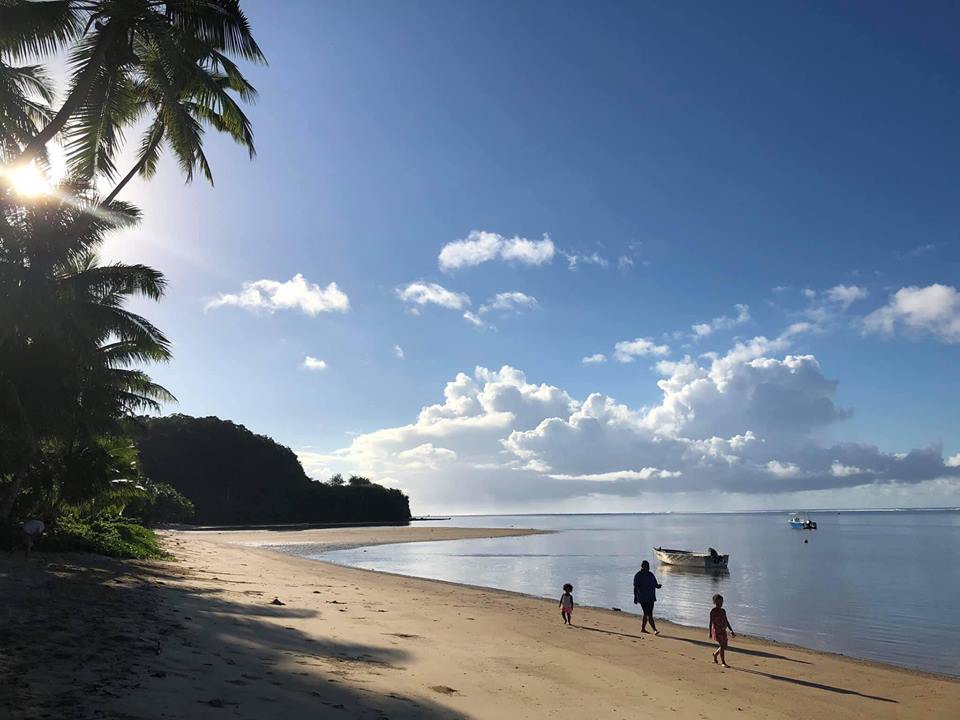
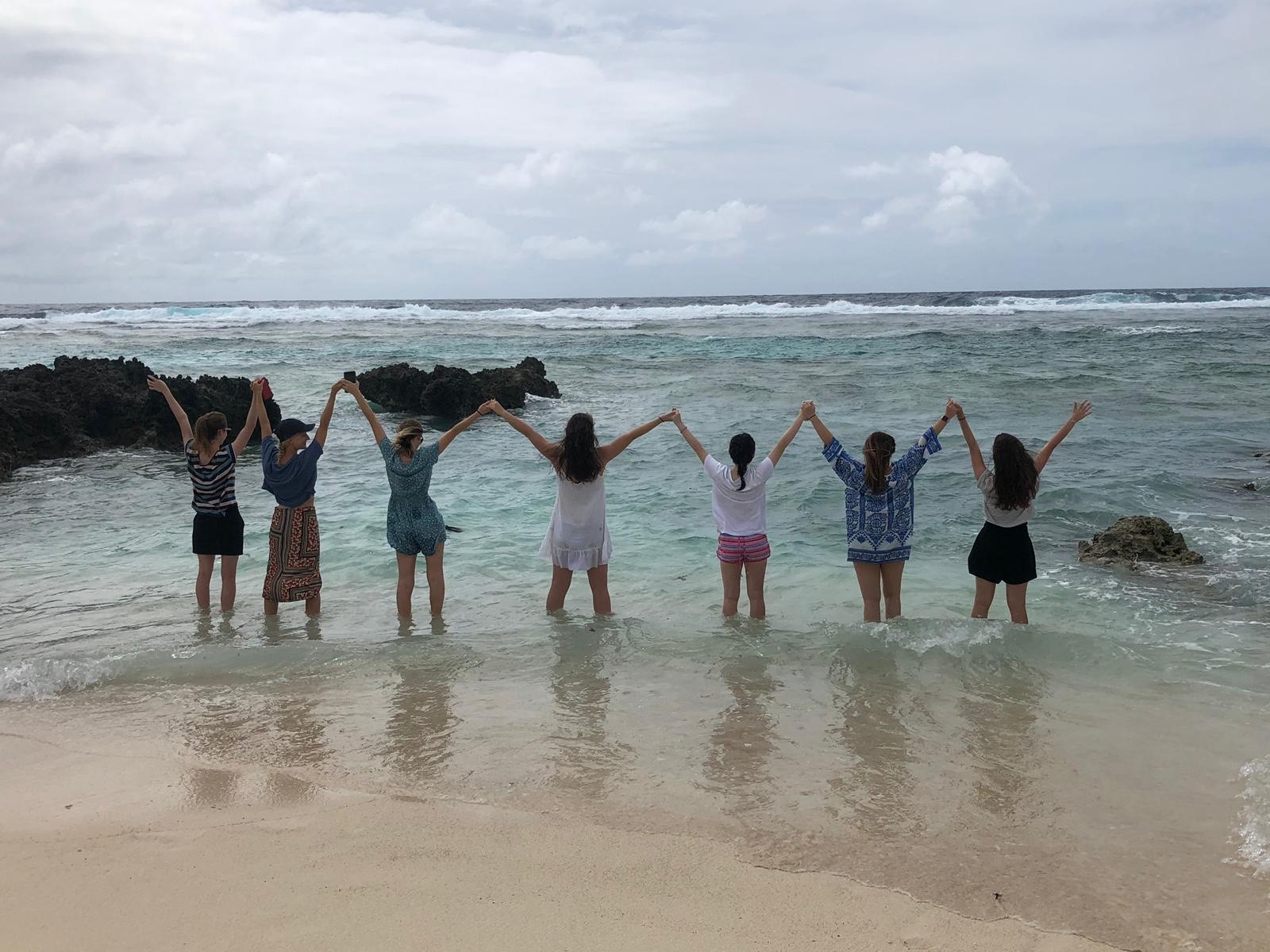
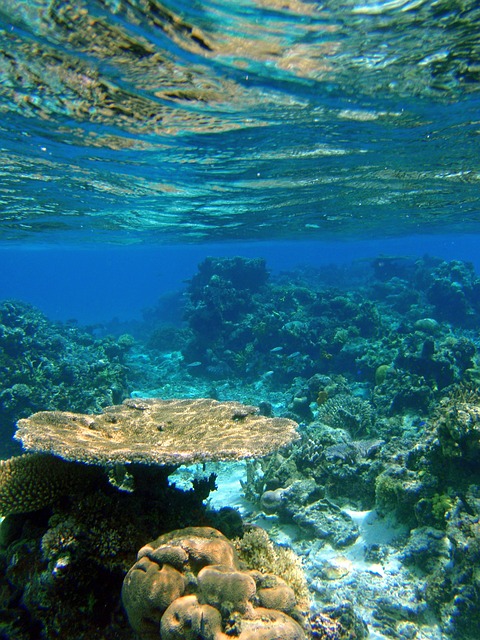
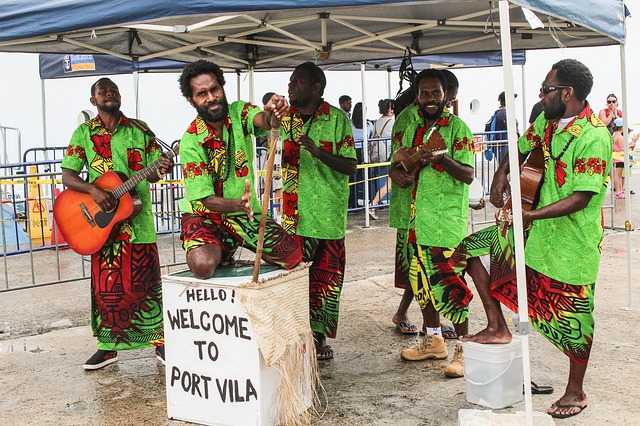
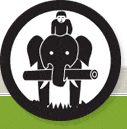 Involvement Volunteers International
Involvement Volunteers International 